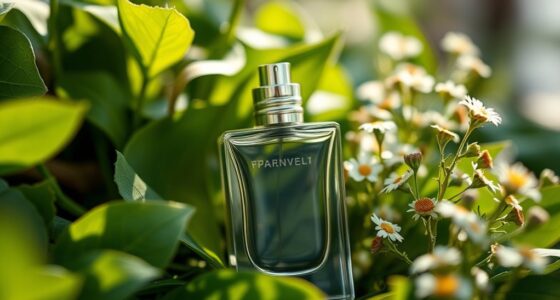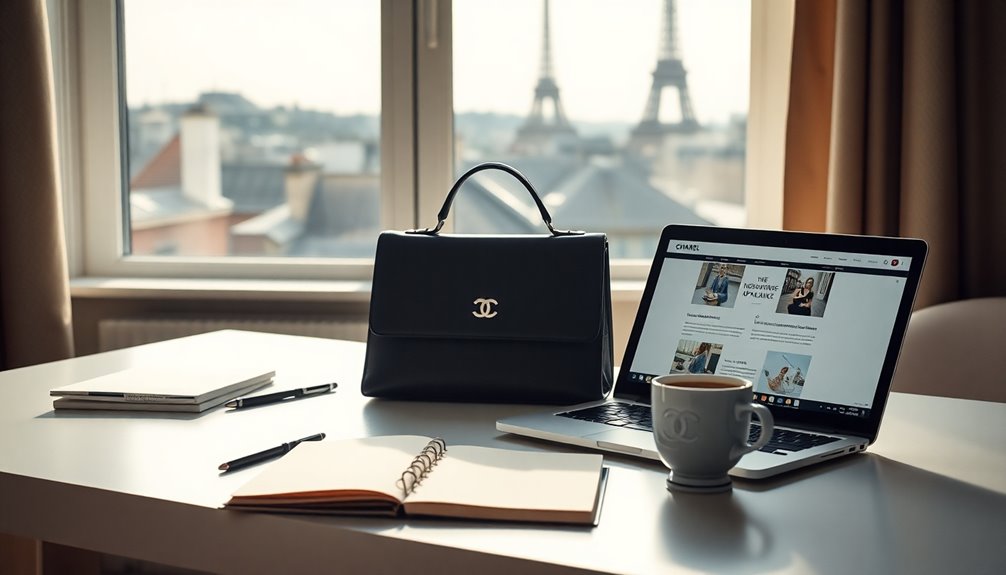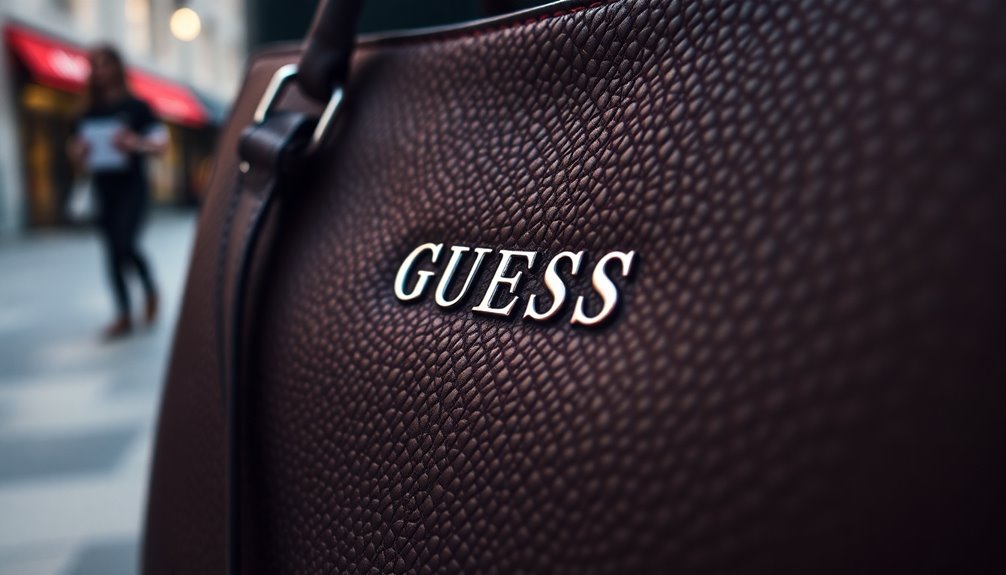Hermes has successfully avoided a lawsuit over its highly coveted Birkin bags once again, despite ongoing allegations of manipulating the market to keep prices and scarcity high. The legal challenges argue that Hermes’s limited distribution and sales tactics create artificial shortages and coerce consumers into unwanted purchases. While the case remains unresolved, understanding these tactics and their implications can give you more insight into the luxury market’s complexities and ongoing debates. Stay with us for more details.
Key Takeaways
- Hermes has successfully avoided a lawsuit alleging market manipulation and anti-competitive practices related to Birkin bags.
- The ongoing legal case has not resulted in a verdict or penalties against Hermes as of late 2024.
- Courts have questioned whether consumers or competitors suffered actual harm from Hermes’s distribution tactics.
- Hermes’s exclusive sales model and control over distribution remain legally scrutinized but unchallenged in this case.
- The lawsuit continues to highlight debates over luxury brand exclusivity versus fair market practices.

Hermes is facing a class action lawsuit over its handling of Birkin bags, one of the most coveted luxury accessories in the world. The lawsuit, filed on March 13, 2024, in the U.S. District Court in the Southern District of New York, alleges that Hermes engaged in fraudulent and anti-competitive practices related to the sale and distribution of Birkin bags. The plaintiffs argue that Hermes manipulated market mechanics, creating artificial scarcity and high prices, which harm both consumers and overall market fairness. They claim the brand coerces customers into purchasing unwanted ancillary products before granting access to a Birkin, effectively tying the sale of these items together and limiting consumer choice.
You might be aware that Birkin bags are known for their exclusivity. Hermes deliberately keeps them out of online stores, offering them only in select boutiques to “worthy” clients. This limited availability feeds into the mystique surrounding the bags, with many consumers never even seeing a Birkin in person. The prices for these bags range from several thousand dollars to over a hundred thousand, depending on materials and craftsmanship, reinforcing their status as symbols of luxury and wealth. The lawsuit alleges Hermes’s control over distribution and the rare appearance of Birkins in stores contribute to the brand’s market power, allowing it to inflate prices and restrict supply to maintain an aura of exclusivity. Additionally, the importance of long-term financial planning for luxury purchases becomes evident as consumers navigate these high-stakes buying decisions.
The plaintiffs accuse Hermes of using this exclusivity as a strategic tool to manipulate demand and suppress competition. They highlight that Hermes’s buying schemes often require consumers to purchase other, often unwanted, products before they can buy a Birkin. This practice allegedly coerces customers into making additional purchases, which leads to economic loss and limits genuine consumer choice. The secondary market’s high prices further underscore the Bag’s desirability, but the lawsuit contends that these practices distort fair market competition. Hermes’s market dominance is reinforced by its strict control over how and where Birkins are sold, making it nearly impossible for average consumers to access the bags without navigating these complex schemes.
The case has seen some judicial pushback, with Judge James Donato questioning whether consumers have suffered actual harm to competition, emphasizing that Hermes’s right to limit production and set high prices is legitimate. Following this, the plaintiffs amended their complaint to include allegations of misleading sales practices, accusing Hermes employees of misrepresenting the requirements for purchasing a Birkin. As the case continues into late 2024, it remains uncertain how these claims will be resolved, but it underscores ongoing tensions around luxury branding, exclusivity, and fair market practices. Whether Hermes will ultimately face penalties or be forced to change its distribution tactics remains to be seen, but the lawsuit clearly challenges the brand’s longstanding approach to maintaining its elusive reputation.

Designer Classic Top Handbags For women, Shoulder Purses For Ladies, Adjustable Strap Work Satchel with Wallet, IVORY BEIGE
【Bag Size】13.5 x 5.5 x 11inch
As an affiliate, we earn on qualifying purchases.
As an affiliate, we earn on qualifying purchases.
Frequently Asked Questions
How Long Has Hermes Been Involved in Birkin Bag Lawsuits?
You learn that Hermes has been involved in Birkin bag-related legal issues for several years. They faced trademark protection cases in 2023, including an injunction against unauthorized NFT use. The recent class action lawsuit, however, began in March 2024, focusing on alleged anti-competitive practices and tying schemes. So, while they’ve had legal challenges before, the current lawsuit is relatively new, starting just in 2024.
What Are the Main Legal Arguments Against Hermes in These Cases?
Imagine a courtroom where Hermès is accused of weaving a tangled web of legal issues. The main arguments challenge their alleged tying scheme, suggesting they force customers to buy other products before accessing Birkins, violating antitrust laws. Critics also claim Hermès uses its dominant market position to restrict access, inflate prices, and protect trademarks, all while courts question the validity of claims due to lack of clear market definition and concrete injuries.
Have Any Lawsuits Against Hermes Been Settled or Dismissed Officially?
You should know that no lawsuits against Hermès have been officially settled or dismissed yet. The ongoing cases are still active, with courts allowing plaintiffs to amend their complaints and clarify their allegations. Hermès continues to defend itself through motions to dismiss, asserting its practices are lawful and justified by brand exclusivity. As of now, no final resolution has been reached, and the litigation remains unresolved.
Are There Specific Regions Where Hermes Faces More Birkin Bag Legal Issues?
You should know that Hermès faces more legal issues related to Birkin bags in North America, especially in California. Lawsuits there allege unfair business practices, like tying sales and restricting access. In contrast, European and Asian regions haven’t seen similar high-profile legal challenges. Hermès’ strict control over distribution helps avoid lawsuits in Europe and Asia, but in North America, the legal environment is more aggressive, leading to increased scrutiny and lawsuits.
How Do Hermes’ Competitors Address Similar Legal Challenges?
Your competitors fight back fiercely, deploying aggressive legal strategies like trademark enforcement and lawsuits against counterfeiters. They’re like knights guarding their castles, relentlessly protecting brand integrity and consumer trust. They sue resellers, clamp down on counterfeit sales, and challenge marketing practices that threaten their exclusive image. This battle is relentless, with each brand trying to outsmart the other, creating a high-stakes game of legal chess in their quest to dominate the luxury handbag world.

Genuine Leather Lock Design Bucket Bag Vegetable Basket, Fashionable and Versatile Shoulder Handbag (Grey)
【Premium Material】The bag is made of high-quality genuine cow leather. This leather feels great to the touch, has…
As an affiliate, we earn on qualifying purchases.
As an affiliate, we earn on qualifying purchases.
Conclusion
So, you see, Hermes just slipped through this lawsuit like a ninja in the night, leaving everyone in awe. Their Birkin bags are now officially untouchable, more elusive than a unicorn on a rainbow. You might as well try catching a shooting star because, honestly, Hermes once again defies the laws of reality. It’s like they’ve got a secret magic trick up their sleeve—one that keeps them forever out of reach, sparkling brighter than ever!

Handbags for Women Large Designer Ladies Hobo bag Bucket Purse Faux Leather
【Hobo Bags for Women】: Top zipper closure, with 2 side zipper pockets design, 1 back zipper pocket and…
As an affiliate, we earn on qualifying purchases.
As an affiliate, we earn on qualifying purchases.

LYBHYQTII Bag Compatible with Labubu 17cm Dolls – Premium Handmade Doll Bag – Luxury Chic Style Set High-End Fashion Accessories (No Doll, Only a Bag) – White
【Dolls Accessories with Bag】Transform your doll with this stylish doll bag. Every piece completes a charming look for…
As an affiliate, we earn on qualifying purchases.
As an affiliate, we earn on qualifying purchases.










